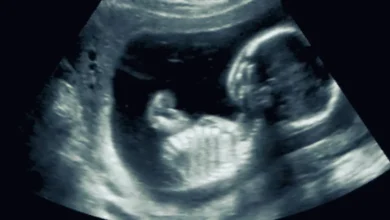Surgical tools found inside the bodies of Iraqi patients

Medical errors present a significant challenge in healthcare systems worldwide, and Iraq is no exception. The country has been grappling with growing concerns over medical mistakes that lead to dire consequences for patients.
We shed light on the real-life stories of victims like Ammar Hussein (23 years old), who underwent a surgical procedure for an appendectomy that unexpectedly turned his life into a nightmare.
Ammar Hussein’s ordeal began with sudden and excruciating abdominal pain. He rushed to a nearby hospital, where, upon examination, the doctor decided to immediately perform an appendectomy.
The surgery was deemed successful, and Ammar was relieved.
However, his relief was short-lived, as he encountered complications that forced him to return to the hospital.
Seeking a second opinion, Ammar underwent new medical tests, only to discover that the surgeon who performed the initial procedure had left a surgical instrument inside his body.
This oversight led to a deteriorating health condition that has plagued him for nine years.
Similar experiences have been endured by others like Salwa Jabbar (25 years old). In her case, complications resulting from a medical error during childbirth not only caused paralysis in one of her twin babies but also left her unable to conceive for the rest of her life.
The consequences of medical errors go beyond enduring permanent disabilities. In many cases, such errors have resulted in fatalities.
Although there is no official statistical data on medical errors in Iraq, social media platforms often buzz with stories that prompt empathy for victims and spark discussions about accountability for those responsible.
Medical practitioners point to corruption within Iraq’s healthcare sector as a primary contributor to medical errors.
The pursuit of government contracts and tenders has put immense pressure on the healthcare system, with political entities vying for control over the Ministry of Health to secure financial gains.
This environment has weakened the healthcare infrastructure, leading to a surge in medical errors.
Some sources also attribute medical errors to individuals posing as doctors without proper qualifications. This phenomenon exacerbates healthcare challenges and can result in widespread health crises.
Iraq’s Ministry of Health dismisses claims of exaggeration regarding medical errors, asserting that errors are an inherent aspect of medicine worldwide.
The ministry emphasizes its commitment to a medical responsibility division that collaborates with security and judicial bodies to address medical errors.
Patients have the right to file complaints against healthcare facilities suspected of committing medical errors, and the ministry has outlined procedures to hold responsible parties accountable.










